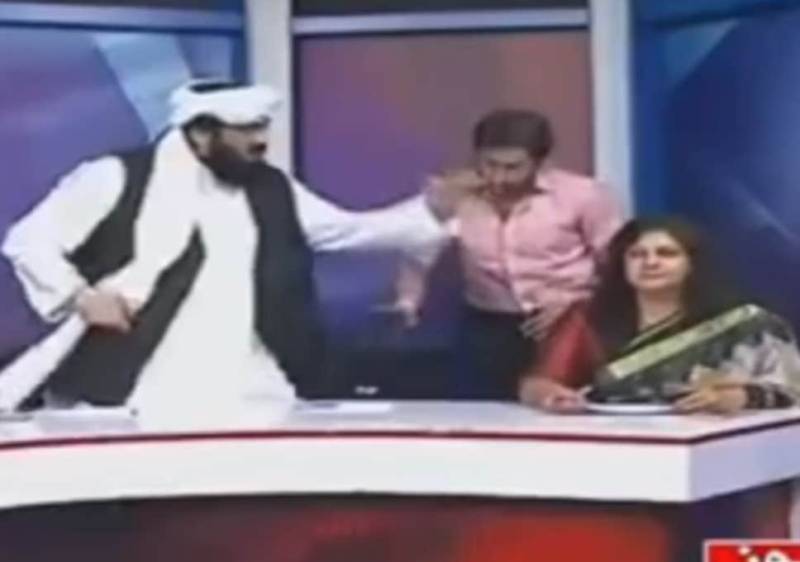
In yet another misogynistic remark on the floor of parliament, PTI Minister for States and Frontier Regions and Narcotics Control Shehryar Afridi on Tuesday asked PML-N member Rana Sanaullah in a challenging tone to face the trial of drug trafficking case “like a man.” This statement stems from the patriarchal notion that only man can be ‘brave and courageous.’ A few months ago, Prime Minister Imran Khan, while addressing a public gathering, intentionally referred to PPP Chairman Bilawal Bhutto Zardari, as “sahiba” in an apparent reference to his Urdu accent.
This is not the first time that a parliamentarian has used the floor of House to express misogynistic and sexist remarks. In June 2016, Pakistan Muslim League Nawaz’s stalwart Khawaja Asif pointed towards PTI member Shireen Mazari and said, "Someone makes this tractor trolley keep quiet" when she and some other lawmakers protested to his speech on load-shedding during Ramazan. Later, Khawaja Asif submitted an apology to the then speaker of National Assembly Ayaz Sadiq, while not naming Shireen Mazari in the apology letter. However, Shireen Mazari refused to accept the apology, saying Asif must apologise to her, in the house and in front of all lawmakers.
In May 2019, PML-N’s Talal Chaudhry targeted PTI’s Firdous Ashiq Awan. While speaking to a reporter, he said, “If Firdous baji was to wash her face, the true her would come out from behind the makeup, meaning that instead of Firdous baji, Firdous Khan will emerge.” After much outrage from his colleagues and on social media, Talal Chaudhry offered a half-hearted apology on Twitter. In April 2017, the then Prime Minister Nawaz Sharif shamed PTI women for attending their party gathering that involved dance and music. “We have seen what they [the PTI women] were doing in yesterday’s rally,” the PM remarked in a public rally at Okara.
This is not a case only in parliament or public gatherings but in talk shows too. Hafiz Hamdullah, a senior leader of the JUI-F, verbally abused senior journalist, Marvi Sirmed, and tried to attack her, during a live talk show.
Even today, sexism and misogyny seem to be acceptable in the parliament, public gatherings, and talk shows. Politicians from all parties have been guilty of this practice, that’s why it would not be right to hold any single party solely responsible for this. Misogynist and sexist commentary cuts across party lines in Pakistan. The politicians must understand that ridiculing someone because of gender, voice, physical appearance, and sexual orientation is not the right thing to do at all.
This is not the first time that a parliamentarian has used the floor of House to express misogynistic and sexist remarks. In June 2016, Pakistan Muslim League Nawaz’s stalwart Khawaja Asif pointed towards PTI member Shireen Mazari and said, "Someone makes this tractor trolley keep quiet" when she and some other lawmakers protested to his speech on load-shedding during Ramazan. Later, Khawaja Asif submitted an apology to the then speaker of National Assembly Ayaz Sadiq, while not naming Shireen Mazari in the apology letter. However, Shireen Mazari refused to accept the apology, saying Asif must apologise to her, in the house and in front of all lawmakers.
In May 2019, PML-N’s Talal Chaudhry targeted PTI’s Firdous Ashiq Awan. While speaking to a reporter, he said, “If Firdous baji was to wash her face, the true her would come out from behind the makeup, meaning that instead of Firdous baji, Firdous Khan will emerge.” After much outrage from his colleagues and on social media, Talal Chaudhry offered a half-hearted apology on Twitter. In April 2017, the then Prime Minister Nawaz Sharif shamed PTI women for attending their party gathering that involved dance and music. “We have seen what they [the PTI women] were doing in yesterday’s rally,” the PM remarked in a public rally at Okara.
This is not a case only in parliament or public gatherings but in talk shows too. Hafiz Hamdullah, a senior leader of the JUI-F, verbally abused senior journalist, Marvi Sirmed, and tried to attack her, during a live talk show.
Even today, sexism and misogyny seem to be acceptable in the parliament, public gatherings, and talk shows. Politicians from all parties have been guilty of this practice, that’s why it would not be right to hold any single party solely responsible for this. Misogynist and sexist commentary cuts across party lines in Pakistan. The politicians must understand that ridiculing someone because of gender, voice, physical appearance, and sexual orientation is not the right thing to do at all.
